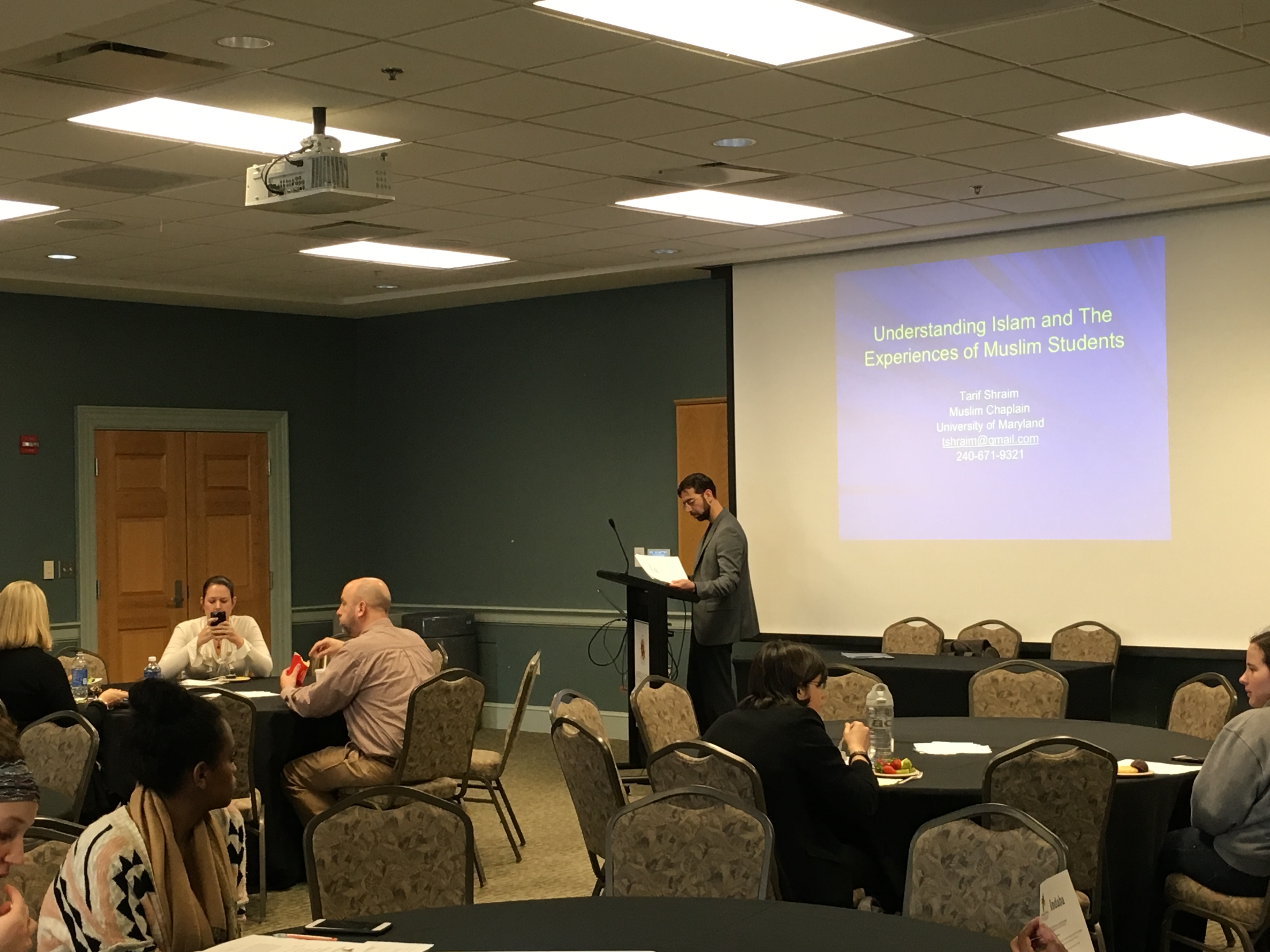By Nate Harold
For The Diamondback
About 50 people gathered in Stamp Student Union on Tuesday to learn about the Islamic faith and the concept of Islamophobia, and to discuss perceptions of Muslim students on the University of Maryland campus.
Tarif Shraim, the university’s Muslim chaplain, discussed possible perceptions of Muslims as violent extremists and terrorists, how those perceptions can affect students on the campus and how the community can work to stop them.
Muslim students “want to be treated with dignity and respect, not just be tolerated,” Shraim said.
The best way for students to overcome negative stereotypes about the Islamic faith is to take an interest in it and speak with Muslim students to better understand the religion and culture, Shraim said. He emphasized the importance of diversity on college campuses.
Shraim said Muslim students across the country have become victims of violent hate crimes and discrimination because of their faith. This could be a result of harmful stereotypes that are promoted around the world in different media, he said.
“Studies have shown that 80 percent of Muslim stories in the media are negative,” Shraim said.
Fostering discussions like this and educating people — especially students — on important issues of diversity can help overcome negative perceptions, Shraim said. This seems especially important at this university, where there are more than 2,000 Muslim students, he added.
“[I want the students] to see Muslim students as ordinary people, as human beings, as Americans who call America their home,” Shraim said.
Shraim also encouraged Muslim students to connect through the Muslim Student Association.
“Knowledge is power,” said Margaret Tatum, a sophomore fire protection engineering major. “You can’t learn this in a textbook. You need to go out. … You need to talk to Muslim students. You need to talk to the chaplain, and you need to have discussions about diversity. Being surrounded by different people helps you grow as a person.”
The event was hosted by the Student Affairs Diversity Initiative Indaba Series and was part of the university’s Maryland Dialogues on Diversity and Community series.
“We’ve seen that in our diversity series that we have on campus — the dialogue series — to not just talk about one topic but many topics so that we can be at least aware, and hopefully tolerant, in learning this information,” said event organizer Kia Weeden, Department of Resident Life educational programs and outreach coordinator.
After his lecture, Shraim divided the room into groups in which students and faculty members could share their views about and experiences with Muslim students on the campus. Several audience members, including freshman biology major Desire Tadesse, said it was important for the university to hold an event like this to address these issues.
“Right now in the media, we hear association of Islam with, like, terrorism or violence,” she said. “So it’s really important to have events like this to show us that Muslims are individuals.”



